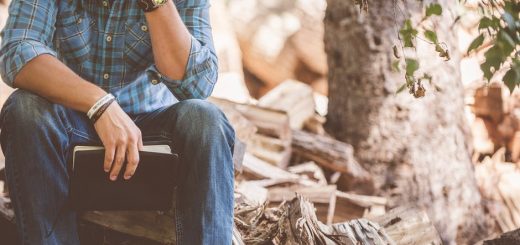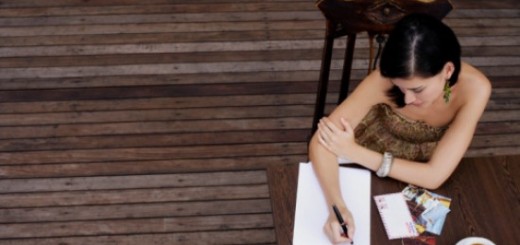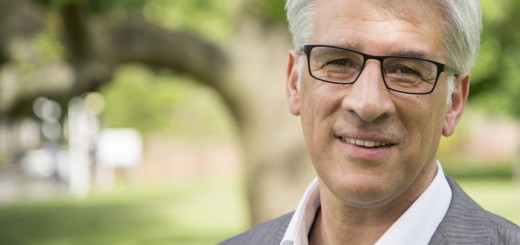Hidden Lives 1: If I were a photographer….
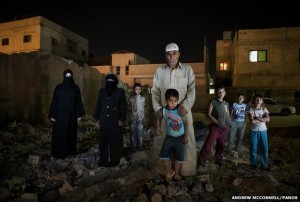 I’m not ready to move on from the subject of refugees yet. If it is to be one of the main issues of the upcoming election, then it is worth more reflection. Some of the last assemblies I wrote back in 2013 were based on an exhibition at St Pancras Station in London of photos of urban refugees. The images can be still seen in Hidden Lives. I’ll just post one of those each day for the next 6 days and see what you think….they are aimed at Secondary School students but we can all learn from the lives of others, however old we are……
I’m not ready to move on from the subject of refugees yet. If it is to be one of the main issues of the upcoming election, then it is worth more reflection. Some of the last assemblies I wrote back in 2013 were based on an exhibition at St Pancras Station in London of photos of urban refugees. The images can be still seen in Hidden Lives. I’ll just post one of those each day for the next 6 days and see what you think….they are aimed at Secondary School students but we can all learn from the lives of others, however old we are……
Introduction
Leader: I wonder how many of you enjoy taking photos. I’m sure lots of you take photos on your phone every day to upload onto Facebook. Maybe some of you aspire to be a professional photographer some day. If you could earn a living from taking photos, I wonder what your subject matter would be. Think about it for a moment – if you were a photographer, what would you take photos of?
Reader 1: If I were a photographer, I would take photos of celebrities. I would go around with the paparazzi and hide in bushes and get paid millions for a photo of David Beckham in his pants or some politician kissing his secretary. It would be so exciting.
Reader 2: If I were a photographer, I would take pictures of animals. I love taking photos of my kitten. She is so cute. Fearne Cotton even used one of my pictures in her ‘Want to see something cute?’ feature on Twitter.
Reader 3: If I were a photographer, I would take photos of natural disasters. Imagine getting the perfect shot of a volcano erupting or a tower toppling down in an earthquake. My dream is to get one of my photos in National Geographic magazine.
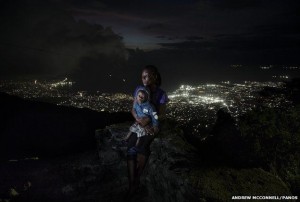 Leader: Today’s assembly is about an actual photographer, the award-winning photographer Andrew McConnell. He has had his photos printed in publications such as National Geographic. He has won many awards for his work. Today we are going to look at his latest project and his reasons for choosing to take these particular photographs.
Leader: Today’s assembly is about an actual photographer, the award-winning photographer Andrew McConnell. He has had his photos printed in publications such as National Geographic. He has won many awards for his work. Today we are going to look at his latest project and his reasons for choosing to take these particular photographs.
Reflection
Leader: This interview is based on actual interviews with and reports about Andrew McConnell. So, Andrew, what have you chosen to take photos of in this project? A famous celebrity? Cute baby animals? An incredible earthquake?
Andrew: No, none of those. My photos are all portraits of urban refugees, photographed in eight cities across four continents.
Leader: That doesn’t sound very glamorous. Why would you choose to take photos of refugees?
Andrew: No, it was far from glamorous. I was detained three times myself during this project. I chose this subject because the commonly held view of refugees is that they are people who have fled their homes to live in tents in the middle of nowhere. However, the reality has changed. It is true that these people have fled from persecution and extreme hardship and have been forced to leave everything behind. But now, many refugees do not settle in camps. Now over 6 million people, more than half of the world’s refugees live in some of the world’s biggest cities.
Leader: Wow, I didn’t know that. But that still doesn’t explain why you took these pictures.
Andrew: What I wanted was to challenge that stereotype and hopefully present a new way of viewing refugees in the modern world. I wanted to show that they are here among us in our cities. I wanted to present refugees as individuals, not as a nameless sea of faces or a statistic or one of a crowd.
Leader: And how did you achieve that?
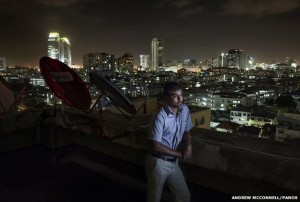 Andrew: I spent time with individuals listening to their stories of how they came to their new lives. The exhibition is all about the individual, about giving each person a voice. Each story is displayed alongside the relevant photograph.
Andrew: I spent time with individuals listening to their stories of how they came to their new lives. The exhibition is all about the individual, about giving each person a voice. Each story is displayed alongside the relevant photograph.
Leader: And how did the refugees that you spoke to respond?
Andrew: I made sure that we respected the wishes of each individual. Some refused to be photographed. Some didn’t want to be named. Many feared for the safety of friends and family still living back home. But the vast majority were pleased to have the opportunity to tell their story. The story is where the power is.
Leader: So where will your photos be displayed? In a gallery somewhere?
Andrew: No, the exhibition is called “Hidden Lives – The Untold Story of Urban Refugees” and will be displayed in St Pancras International Station in London from 6–31 January 2013. It will then hopefully move on to Brussels and New York. Four million people a day pass through St Pancras station. This is where photography should be displayed, where everyone can see it.
Leader: So your gift is clearly photography. How do you feel this can help raise the profile of urban refugees?
Andrew: Photography is just one of the many tools we have to describe the difficult situations faced by people such as these. I have aimed to create images that draw people in, that make them want to know more. My hope is that people will enjoy my photos but also learn more about the urban refugees living alongside us all in our cities.
Response
Leader: It has been fascinating to hear the story of Andrew McConnell and his reasons for choosing to photograph urban refugees. He has clearly used his creative gift for the good of others.
We can all learn something from his example. We all have gifts. We are all good at something. Maybe it is drawing, or dancing, or cooking, or writing stories. Maybe we are good at sport or playing an instrument. Take a moment to reflect on what you are good at.
It is how we choose to use our gifts and talents that is important. We should not waste the gifts that we have been given. We should not be selfish and keep our talents to ourselves. It is important to find a way to use our gifts for the good of others, just like Andrew McConnell has done. So how can you use your creative gift for the good of others?
Reader 1: I am pretty good at baking. I suppose I could make a cake and take it round to the old lady next door. I think she is pretty lonely.
Reader 2: I love running. I could enter the fun run in the park next month and raise money for the local hospice.
Reader 3: I am good at drawing. I could volunteer to help with the lower school Art Club. It would be good to inspire other people to enjoy drawing too.
Leader: What could you do?
Let us conclude our time together with a short prayer. You may make these words your own if you wish.
Dear God,
We remember the refugees living in difficult circumstances in big cities all over the world and pray that they would be treated as individuals and not as a statistic.
We thank you for the work of Andrew McConnell and pray that his exhibition would raise awareness and chance perceptions about urban refugees.
We think of our own gifts and pray that we would find ways to use them for the good of others.
Amen
